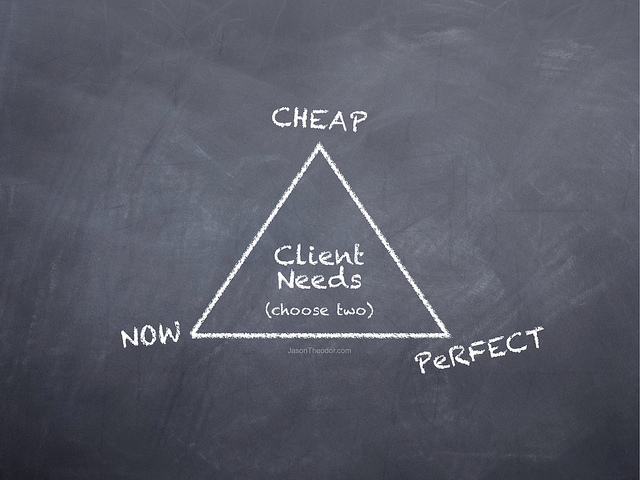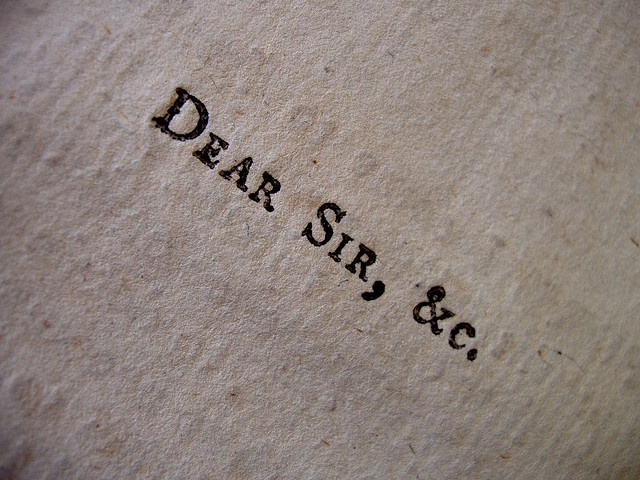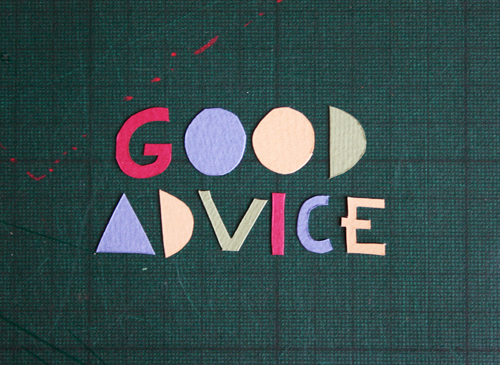Good Advice #11: Help, My Client Didn’t Read the Contract!
I know, it sounds crazy, but some people sign legally binding documents without reading them. Bonkers, right?
But what do you do when the person who hasn’t read the contract is the person you’re working for? What happens when your client doesn’t know what he agreed to?
I’ve been using a contract with my clients for years now. I had a lawyer help me put it together and I only have to change it every once in a blue moon. It’s been a really helpful tool in a lot of gigs, but I don’t quite know how to use it in my current situation.
In October I landed a new client for some design work. I gave him my contract and he returned it, signed, in a few days. I thought we were off to a great start.
As the job has gone on, however, it’s become apparent that he didn’t read the contract. He regularly asks for work that I specifically listed as out of scope and when I point out that work isn’t what we agreed to he tells me that he just, “wants to make sure he gets what he paid for.”
He’s not a bad guy, but his ambivalence about what we agreed to is really beginning to affect how I approach my work for him.
How do I tactfully enforce the contract? I don’t want to lose him as a client, but I also can’t put up with this much longer.
First things first: congratulations on using a contract! That can be an intimidating thing to do, but it’s important and you’d be in a much worse position in this situation if you weren’t using a contract. So, “Go Team Contract Users!”
Because you have a contract, confronting the client about his behavior is a win-win for you.
If you confront him and he realizes the error of his ways, or revises the contract accordingly, you win.
If you confront him and he pushes back, demanding more than what you agreed to, you fire him and you win. Because firing someone who can’t respect your professional boundaries is a win, always.
But we aren’t quite there yet.
You said you’ve brought up the fact that what he’s asking isn’t what you all agreed to, but have you said so in language that is that plain and simple? Have you said, “Hey Jim, that’s not in our contract”?
If you haven’t, you need to.
Beating around the bush and trying to find nice language to convey “that’s not in the contract” is tempting, but I personally think it’s a waste of time.
All the euphemisms for “it’s not in our contract” — “that’s not what we agreed to,” “we didn’t talk about that,” even “that’s out of scope” — can be interpreted in ways that have nothing at all to do with the contract you signed.
Don’t let him think you’re talking about how you feel or that conversation you had on the phone that one time. Make sure he understands you’re talking about that legal document you both signed.
If you have been that explicit and he’s still not getting it, you need to tell him what his options are.
They are (1) following the contract or (2) amending the contract in a manner you both agree to.
(Technically, he could opt for (3) not following the contract, but as that would lead to you firing him, best to leave it off the table for the time being.)
A quick email with the signed contract attached is a good starting place. “Jim, you’ve been asking for work that’s beyond the scope of what we agreed to in the contract. We can either stick with what we agreed to in the contract, attached for reference, or amend the contract to add the extra work and adjust the cost accordingly.”
Notice the language, pretty please: you aren’t asking him to pay attention to the contract, you are taking it as a given that the contract is an accurate description of the project. You also aren’t asking him to consider spending more money if he wants the additional work; you’re telling him it will cost more.
A mistake I see freelancers make is assuming that because their client is pushing back, they must put themselves in a worse position than they’re currently in to accommodate the client’s demand.
No. In a situation where a client has signed a contract and now wants more, the contract is literally your worse case scenario. The contract is your floor; it is Option #1, follow the contract.
The floor can change (Option #2), but only if you and your client agree to change it.
And, if you agree to change the contract, you get something better than the floor.
What do I mean? I mean the deal you agreed to, the one he signed off on, that’s the worst deal you can get at this point. If he wants changes, the deal has to be better for you. Otherwise, there’s no point in changing the contract.
“But Katie! If I don’t change the contract, the client won’t pay me!”
OK.
Then stop working for that client.
Stop wasting your time working for the client who can’t follow the thing he agreed to and thinks you’re some sort of services vending machine. Not working for someone who doesn’t respect you is a good thing.
You’re doing the right thing by using a contract and making your client pay attention to his obligations. If he refuses to live up to what he agreed to once you point out his options, don’t feel bad about firing him. It will free you up for better clients who do respect you. And trust me, they’re out there.
Have you had a client not follow a contract? How did you handle it?
Categories: Good Advice Posts






This is great. “No” can be so hard for us freelancers to say. Thankfully contracts help make that no a safe answer.